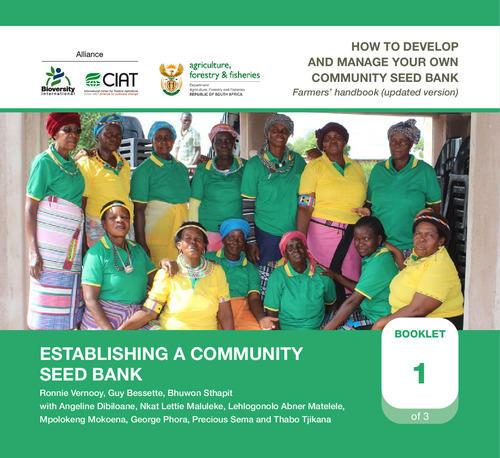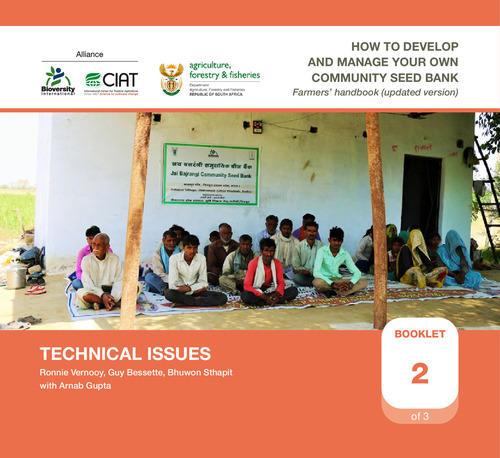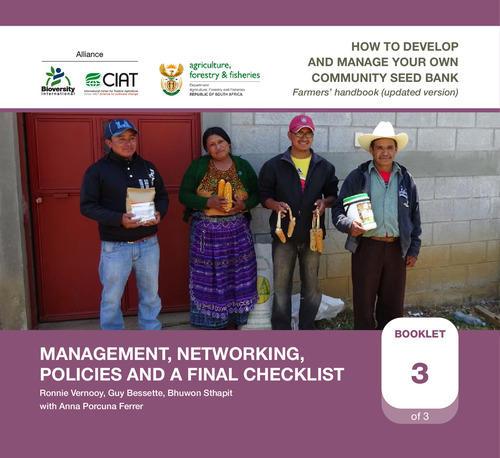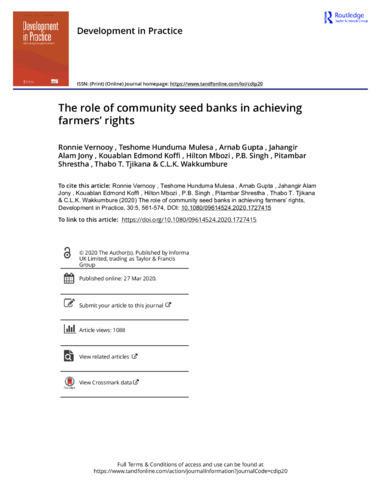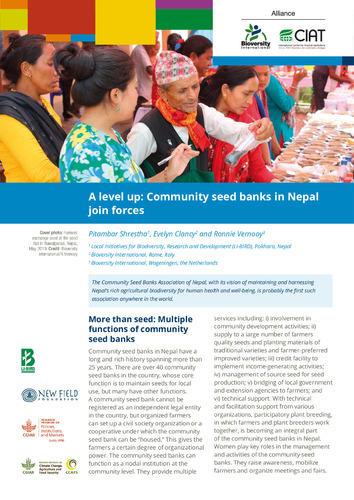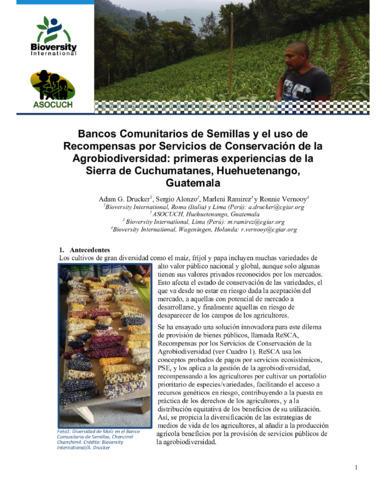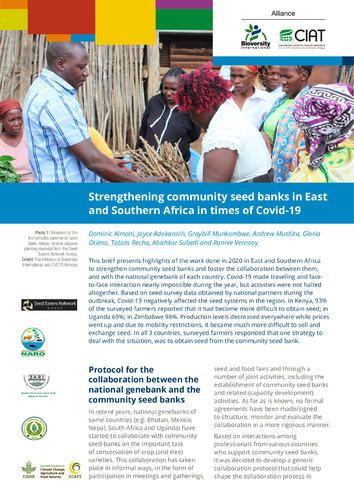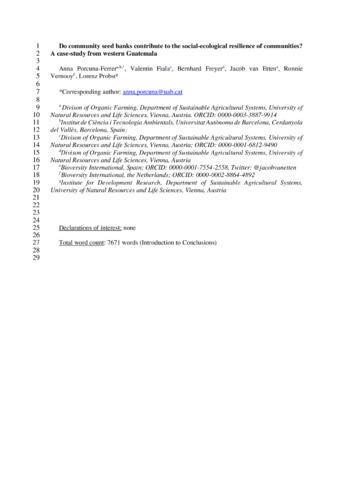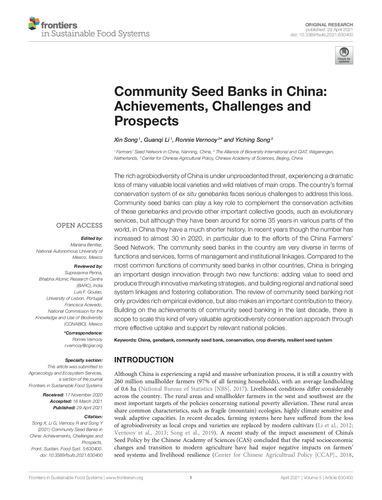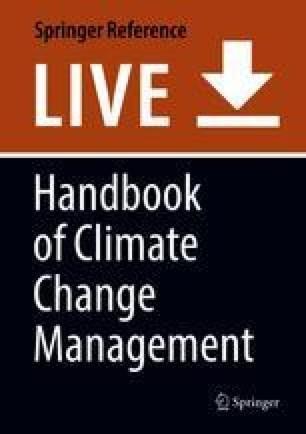Community Seedbank Training: Handbooks for Facilitators and Farmers
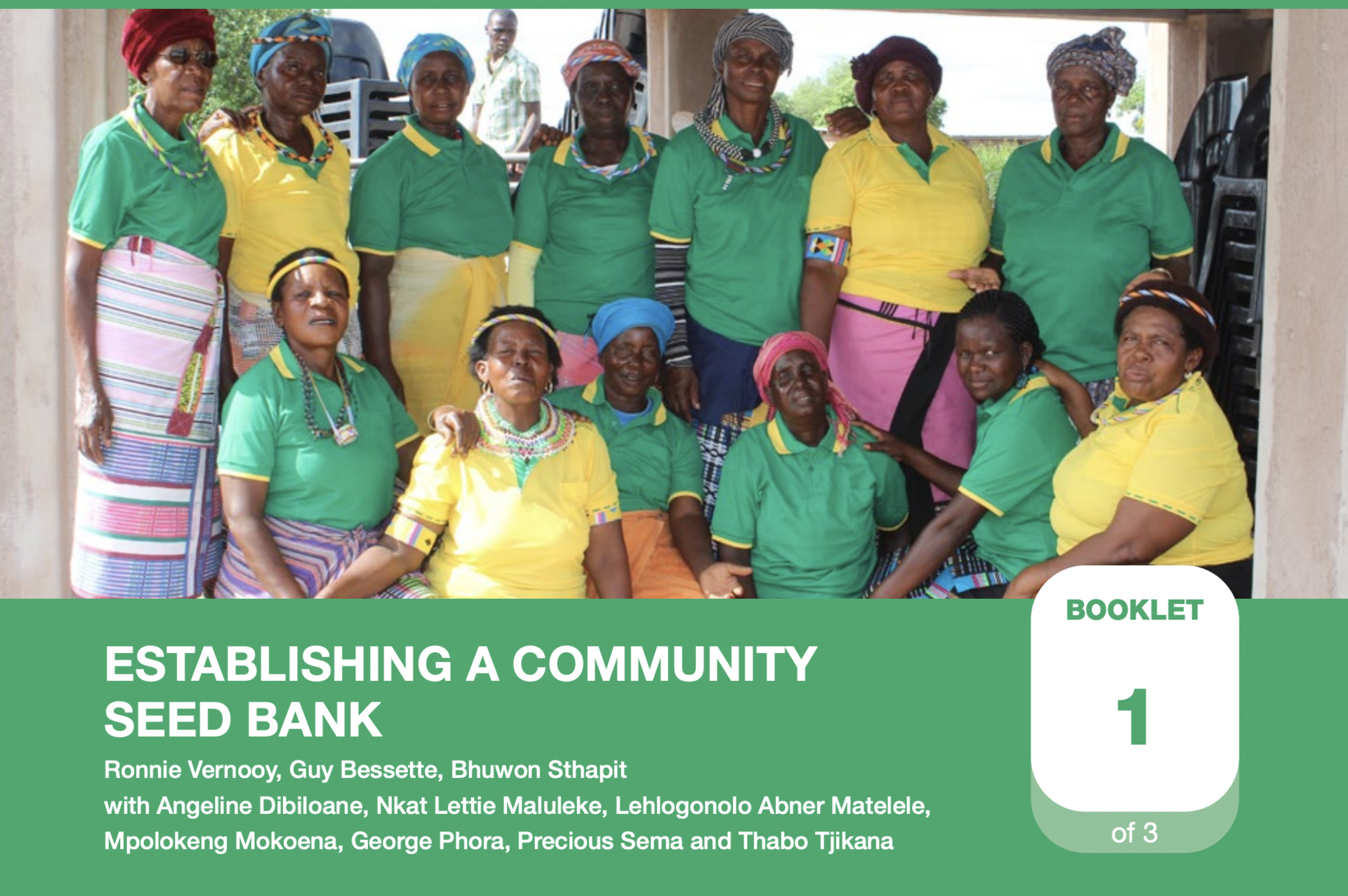
Over three decades, a number of international and national organizations have provided technical and financial support to community seedbanks around the world. This handbook, first published in 2017 and updated in 2020, is a practical guide to how they offered this support. It fills a knowledge gap and advances research and capacity development regarding community seedbanks. The handbook is organized as a guide for facilitators — people who work in the field with farmers and their organizations on issues of seed conservation and sustainable use.
The handbook is organized in nine modules. The methodological approach promoted is based on participatory learning, where facilitators and learners interact actively, make use of their experience, and learn together. Lecturing is kept to a minimum. Most of the learning takes place through dynamic exercises in which learners are invited to use and reflect on their own experience and/or on the experience of others (captured in practical case studies, for example). These experiences can cover any aspect of agricultural and rural development that involves farmers. The handbook for facilitators has been translated to Chinese, French, Portuguese, Spanish and Russian.
French: https://cgspace.cgiar.org/handle/10568/96299
Russian: https://cgspace.cgiar.org/handle/10568/96310
Spanish: https://cgspace.cgiar.org/handle/10568/96304
This handbook has three companion booklets for farmers, presented in the form of short, simple texts accompanied by large photographs. The three themes are:
- Establishing a community seedbank
- Technical issues
- Management, networking, policies and a final checklist
The companion booklets are available in English, French, Portuguese, and Spanish. Other translations include Arabic, Ateso, Azindhi, Bari, Chinese, Dinka, Luo, Ndogo, Luo, and Nuer. Translations are uploaded on CGSpace.
In what context is this tool useful?
This handbook is intended for people working directly with women and men farmers, who are motivated to set up a community seedbank or who want to strengthen the operations of a community seedbank that already exists. They may be NGO staff, researchers, plant genetic resource center (genebank) employees, or government extension agents who want to become more knowledgeable about the concept and practice of community seedbanks, who are leading a process to establish one or more community seedbanks, and/or who are conducting training sessions for community members about the concept and practice of a community seedbank.
The handbook is used in an annual short courses about the conservation and sustainable use of plant genetic resources and resilient seed systems that the Alliance co-organizes with the Wageningen Centre for Development Innovations. These are courses for professionals in public, civil, research, education and/or development organisations, with an interest in agriculture, agrobiodiversity, seeds and food security.
Results achieved
These handbooks had helped farmers to organize Community seed banks around the world to conserve, restore, revitalise, strengthen, and improve plant genetic resources for food and agriculture, especially, but not solely, focusing on local varieties of crops. Community seed banks are helping farmers and communities regain, maintain, and increase their control over the seeds they use. Many of them have led to stronger cooperation among and between farmers and with others, such as plant breeders, other agricultural researchers, and gene bank managers, who are involved in the conservation and sustainable use of agricultural biodiversity.
Many case studies from around the world are presented in the books ‘Community seed banks: origins, evolution and prospects’ and ‘The role of community seed banks in achieving farmers’ rights’.
Since their publication in 2020, the handbooks have been used in eight international training courses on resilient seed systems offered by the Wageningen Center for Development Innovation-Wageningen University and Research in collaboration with the Alliance of Bioversity International and CIAT, which were attended by (agricultural) professionals from around the world. Total trainees: 170.
Alliance staff and national partners have used / are planning to use the handbooks for training activities with professionals and farmers in China, Ethiopia, Ghana, Kenya, Malawi, Mozambique, Peru, Poland, Uganda, South Sudan, South Africa, Somaliland, Sudan, Tajikistan, Uzbekistan, Zambia and Zimbabwe. Total reach estimated: more than 10,000.
Next steps/variations
No variations of this tool have yet been developed.

